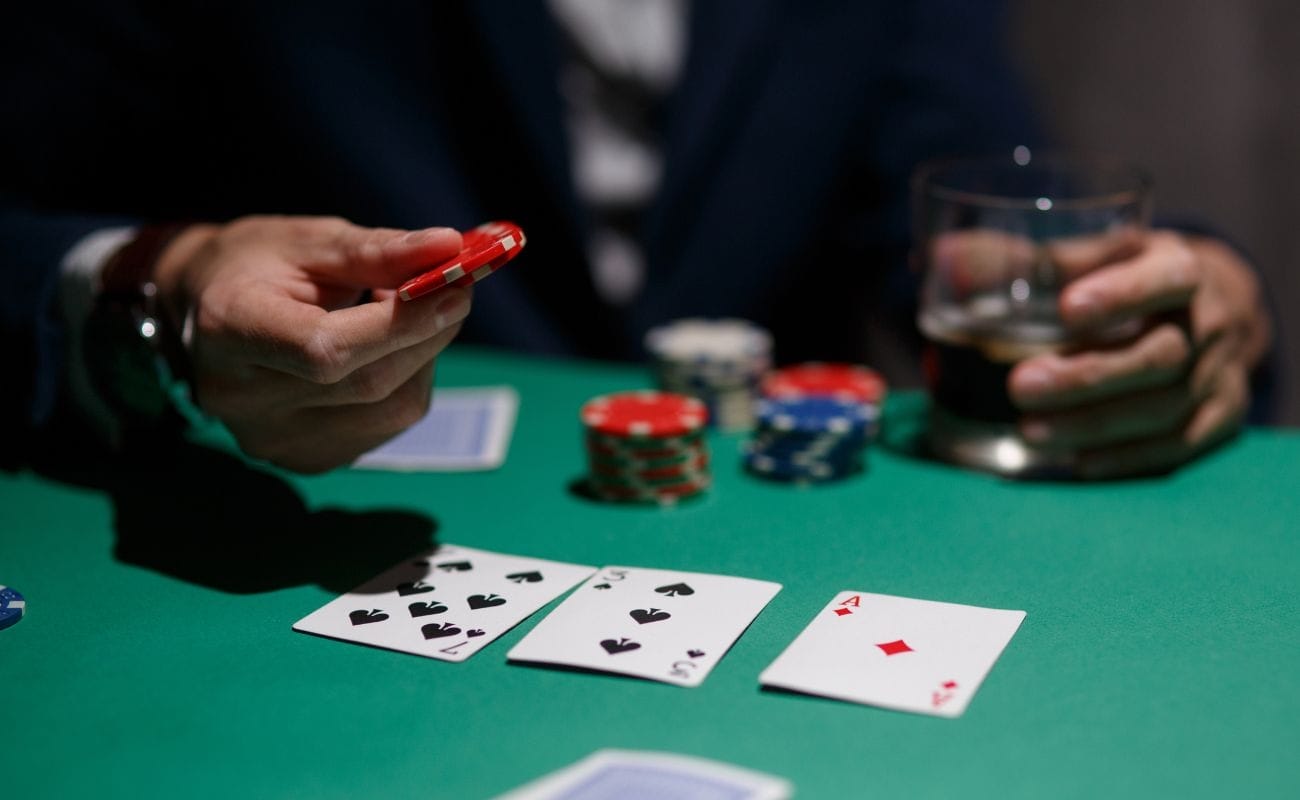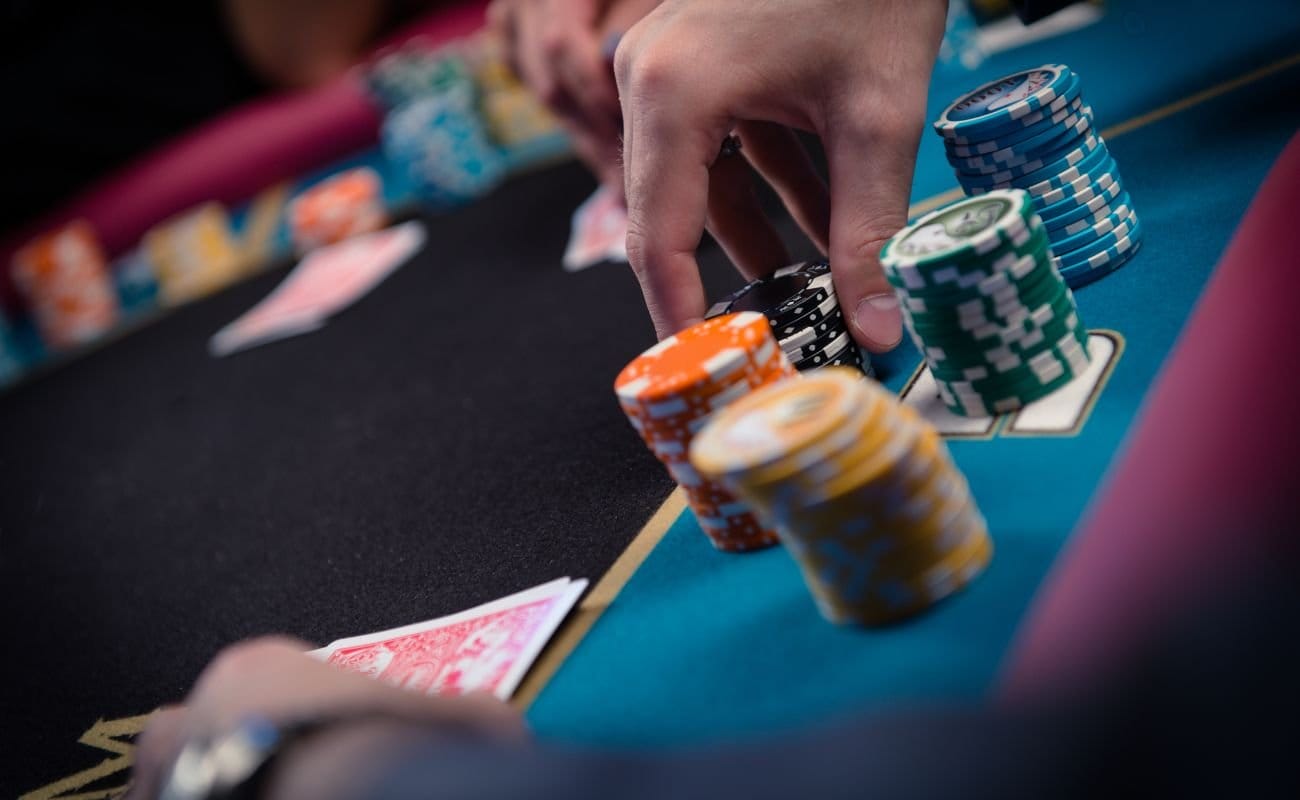
Over the years, a number of classic casino games have evolved to adapt to the changing needs and preferences of players. In poker, however, there is one fundamental principle that will likely never change – Maximizing the pot is at the heart of every professional player’s strategy. If players don’t try to maximize their pot, they prevent themselves from winning big rounds and building a fruitful bankroll. However, building the pot can be like fighting a losing battle if you don’t have an effective betting strategy in place.
Betting in poker is an art; knowing when to raise or fold is essential to becoming a great player and requires careful thought, such as your positioning, the playing style of the opponents, and the strength of your hand.
Whether you’re playing offline or online poker, ensuring you don’t repeat betting patterns is vital to avoid your game becoming predictable. Be sure to mix up your bets with raises, checks, and folds because betting spontaneously increases the chances of implementing an effective strategy. Here’s more about raising and the art of value betting in poker.
What Is a Value Bet in Poker?

There are three primary types of bets in poker: value bets, bluffs, and betting for protection. While each of these bet types has benefits in certain situations, knowing how to value bet effectively can play a big role in your overall win rate.
So, what is value betting in poker? A value bet is a strategic move where players place a bet with the primary goal of extracting the maximum value of their hand. In contrast to bluffing, where you aim to get your opponents to fold, you make a poker value bet when you believe you have the best hand and are trying to raise the pot and attract several opponents to call. You typically value bet when you’re confident you have a stronger hand than your opponent and you’re trying to grow your potential winnings as much as possible. In other words, you want to exploit your opponents and maximize the pool.
Poker games can last several hours. During this time, players face ebbs and flows of weak, medium, and strong hands — in some instances, albeit rare, a player can experience a whole game without a winning hand. So, to ensure longevity in the game, players must maximize their earnings when the chance presents itself.
The best moment to implement value bets is when holding a strong hand, such as four of a kind or a flush, and, of course, when you have the nut hand. But be sure to monitor the community cards and identify what hands can beat you to weigh up the possibility of winning; otherwise, you risk losing big and significantly damaging your bankroll.
Understanding the significance of poker hand value is crucial in this context. It refers to the strength of your hand relative to possible combinations and rankings held by your opponents. For instance, when you have a high-ranking hand like a flush or four of a kind, the potential hand value is substantial, making it an opportune moment to execute a strategic value bet, especially in your poker tournament strategy.
How To Value Bet in Poker
When value betting, there is a fine line between forcing players to fold and enticing them to stay. For instance, bet too high, and most opponents with weak-to-medium hands will fold. Bet low, and plenty will call. And once they’ve invested in the round, it’s easier to tempt players to call bigger bets in the latter stages of a round.
Choosing the right bet size is essential to any successful value bet strategy. The trick is to slow play and draw players in rather than bet aggressively and scare them away. For example, a player raises the big blind by $2, bets $5 during the flop and turn, then stakes $10 on the river.
When Should You Make a Value Bet?

You need to consider certain factors before betting in a poker round — because once you initiate the first bet, all eyes are on you. The texture of the board should influence your decision-making. For example, a wet board gives you more freedom to bet high, whereas a dry board limits you to low-value bets as few hands are available.
Another important factor to consider when you’re deciding if it’s a good time to value bet or not, especially as a beginner, is each player’s specific playing style. Not only is each player different, but, on a larger scale, there are differences in how various cultures approach gambling. So, knowing how your opponents play, what strategies they tend to use, the type of player they are, and how to exploit their playing styles can be an invaluable tool in your poker strategy kit. Historically, the best players to value bet against are fish (they rarely fold) and loose and aggressive players.
When betting for value in poker, positioning is critical. For instance, value bets are less effective in early positions (such as small or big blind) than in late positions because fewer players are betting afterward. So, suppose you find yourself in an early position rather than raising the pot and allowing plenty of opposition to react. In that case, a better poker betting strategy would be to call the initial bet in the hope that another player will raise it for you.
Experienced players will argue that, although luck is definitely important in poker, the external information you can gather during a game can be just as important. Pros will constantly analyze how their opponents bet on specific hand ranges, react to big bets, and whether they’re willing to take risks. This information will significantly influence how and when they implement specific strategies.
For instance, if the active opponents are known to bluff and make aggressive bets, you can feel more confident in calling your value bet. On the other hand, when facing opponents known to fold a lot and only bet when holding solid cards, it may be best for you to avoid value betting and causing others to fold.
Important Factors To Consider for an Effective Value Bet
To succeed in poker, it’s essential that you identify the right moments to value bet and think critically about the purpose and potential impact of your bets. This strategic approach sets the best poker players apart and contributes to a more profitable and well-rounded game.
To further enhance your value betting strategy, consider these factors.
How Fishy Is Your Opponent?
The fishier your opponent, the more emphasis you should place on value betting, and less emphasis should be placed on bluffing. Fish tend to fold less frequently, making them prime targets for well-timed value bets.
Assessing Your Opponent’s Hand Range
Understanding your opponent’s range is crucial, especially as the game progresses to the river. Did they call bets on the flop and turn with decent hands like a pair of jacks or 10s? Or are they more likely to have strong hands like a queen with a good kicker — or even something better? By figuring out this range of possible hands, like specific pairs or higher-ranking cards, you can decide if a value bet is a good idea.
Predicting How Your Opponents Will Respond
Consider what your opponent might do if you make a value bet. Will they call with a not-so-great hand, or do they need a specific set of cards on the table to keep playing? Trying to gauge your opponents’ reactions can help you decide if a value bet is a good move.
Bet Size
The size of your bet plays a pivotal role in value betting. Smaller bets can entice opponents with weaker hands to keep playing, while larger bets may only attract action from players with stronger hands. Knowing how your opponent reacts to different bet sizes is key for making value bets work.
Ultimately, recognizing the intricate interplay of board texture, player styles, positioning, and additional factors is paramount when determining the ideal moments to execute a value bet in poker. Assessing these factors puts you in a better position to refine your strategy and ensure that every value bet is well-timed and as profitable as possible.
Play Poker on Borgata Online
Want to play poker online? As a great place to practice and perfect strategy for online poker tournaments, Borgata Online offers an extensive range of poker variations. Register today and test your skills.
Outside of poker, enjoy 24/7 access to a wide variety of online casino games, including slots, bingo, roulette, and blackjack.
